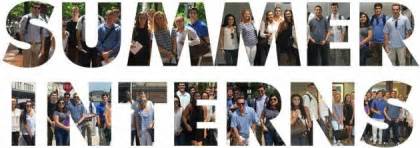Happy Pride! Helpful Career Resources for LGBTQ Scientists and Allies

In 2014, to recognize Lesbian, Gay, Bisexual, Transgender, and Queer (LGBTQ) Pride month, the OITE Careers Blog published a post addressing job search and work environments for LGBTQ scientists called Happy Pride! This blog issue provides useful resources for scientists, their families, and allies in support of inclusive career decision-making and work environments.
LGBTQ Employment and Training Opportunities: In addition to the helpful employment resources referred to in the in the 2014 Happy Pride blog (see above), here are some additional resources:
National Organization of Gay and Lesbian Scientists and Technology Professionals (NOGLSTP). A professional association that provides a listing of career opportunities for LGBTQ science and technology graduates, mentoring, fellowships, and other forms of support.
New Scientist has published a useful article highlighting LGBT employers in the sciences.
GoAbroad.com published an article with links to an excellent on-line LGBT Student Guide to Studying Abroad that provides resources and helpful information that will help LGBT community members prepare to go abroad for studies. The guide is also useful for international applicants seeking knowledge about LGBT safe communities across the world.
The Association of International Educators (NAFSA) published an informative article written for allies of LGBTQ international students regarding the specific needs of this population when they arrive to the US and later return to their home countries.
PFLAG International extends its advocacy for LGBT individuals and families globally. This is a useful resource for LGBT individuals and allies who are preparing to go abroad for short or extended periods of time.
Preferred Gender Pronouns: When applying for internships, jobs, graduate school, and/or professional schools, you may notice a question related to gender pronouns is added. This question allows applicants an option to request their preferred gender pronouns to use when referring to them. Colleges, universities, and human rights organizations provide excellent resources used in ally trainings for students, faculty and staff about using gender neutral pronouns.
Ally Training: Many organizations (including the NIH Office of Equity, Diversity, and Inclusion) offer Safe Zone training that can allow allies the opportunity to learn more about the LGBTQ community and assist in the creation of a more welcoming environment.
LGBTQ Terminology: One way to contribute to a culture of inclusion and respect for community members is to become aware of accepted terms to refer to members of the LGBTQ community. The human rights organization, PFLAG, publishes a terminology glossary that is a useful reference to learn about the latest acceptable terms.
As you can see, it is important for job seekers and their allies to address LGBTQ-related topics in order to keep stress from derailing their life, job search, and/or educational process. The OITE offers career development workshops and/or career, wellness, and pre-professional services. We suggest that you learn when to seek counseling from our office or the NIH Employee Assistance Program. We encourage you to register for the Workplace Dynamics: Diversity in a Multicultural Society workshops and/or join the NIH LGBT Fellows and Friends (LGBT-FF) community. Not at NIH? We recommend using resources offered by your college and university or local community centers. It can be helpful to chat with other professionals who have been through this process to seek advice and support. Out for Work and Out and Equal Workplace Advocates are two good introductory resources.



 Getting oriented to a new lab and role as a researcher is both exciting and somewhat challenging for summer interns. We suggest reading the blog
Getting oriented to a new lab and role as a researcher is both exciting and somewhat challenging for summer interns. We suggest reading the blog  Find something in common: Two things that you have in common with most people at NIH is that you are interested in science and conducting research. In addition, most of you will be in college or graduating soon. These are all conversation starters. Maximize your personal style: Think about your personal style and use skills that maximize your strengths. As mentioned, extroverted types may be comfortable initiating conversations. However,
Find something in common: Two things that you have in common with most people at NIH is that you are interested in science and conducting research. In addition, most of you will be in college or graduating soon. These are all conversation starters. Maximize your personal style: Think about your personal style and use skills that maximize your strengths. As mentioned, extroverted types may be comfortable initiating conversations. However,